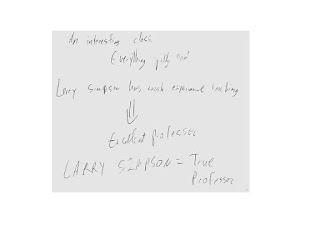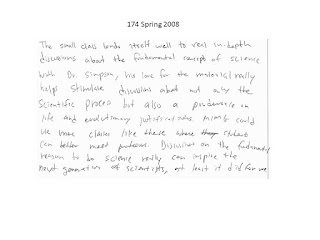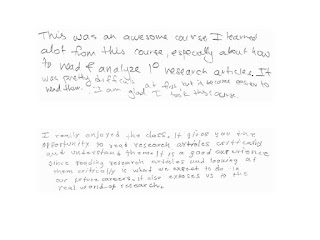When I first came to UCLA as a bushy-tailed Assistant Prof., I was assigned to teach the Freshman Biology Course to an uncountable number of students. This "total immersion" was a real shock to my system and my young ego since I rapidly realized that I did not like doing this, probably because I was not very good at it.
As the years went by I moved on to teaching Cell Biology and enjoyed it a little more and had fewer students. But then a few years ago I decided to teach to upper division undergrads what I really liked - my own field of research, molecular biology of parasites. To be more precise, molecular biology of parasitic protozoa, and to be even more precise, molecular biology of trypanosomes. I discovered that I really liked this and so did the students. My teaching skills progressed until I was actually pleasing more students than I displeased.
And finally, in the last few years, I came to the realization that teaching was not really about the transmitting of facts but the stimulation of excitement in the subject matter. Students could always learn the facts on their own but only if they were excited enough to do doing so. To accomplish this, I decided to humanize the material and introduce the history of how research in parasitology actually progressed to show that science is a very human endeavor performed by very human people. When I introduced a parasite I went back to the discovery of the disease and the parasite that caused this disease and how this came about. I showed them the false trails, the flawed arguments, and finally the brilliance of the discovery. I also did not neglect the occasional fraud, deceit, the jealousy due to competition with other researchers and the tedium of real research which are present in any human endeavour. But I lingered on the excitement of the "chase" and flashes of genius. This was combined with a discussion of the clinical and Public Health problems of these diseases and even the effects of these diseases on historical events. Then I moved to a detailed look at the knowledge gained by the use of modern cell and molecular biology techniques and how this might lead towards developing therapies against these diseases. I always tried to use these discussions to illuminate the general concepts of what are hypothetical "models" and operational "facts" in science. And how that, in the study of parasites, one should always be alert for genetic or biochemical pathways unique to the parasites and not present in the human host which present potential targets for chemotherapies against the diseases.













































































